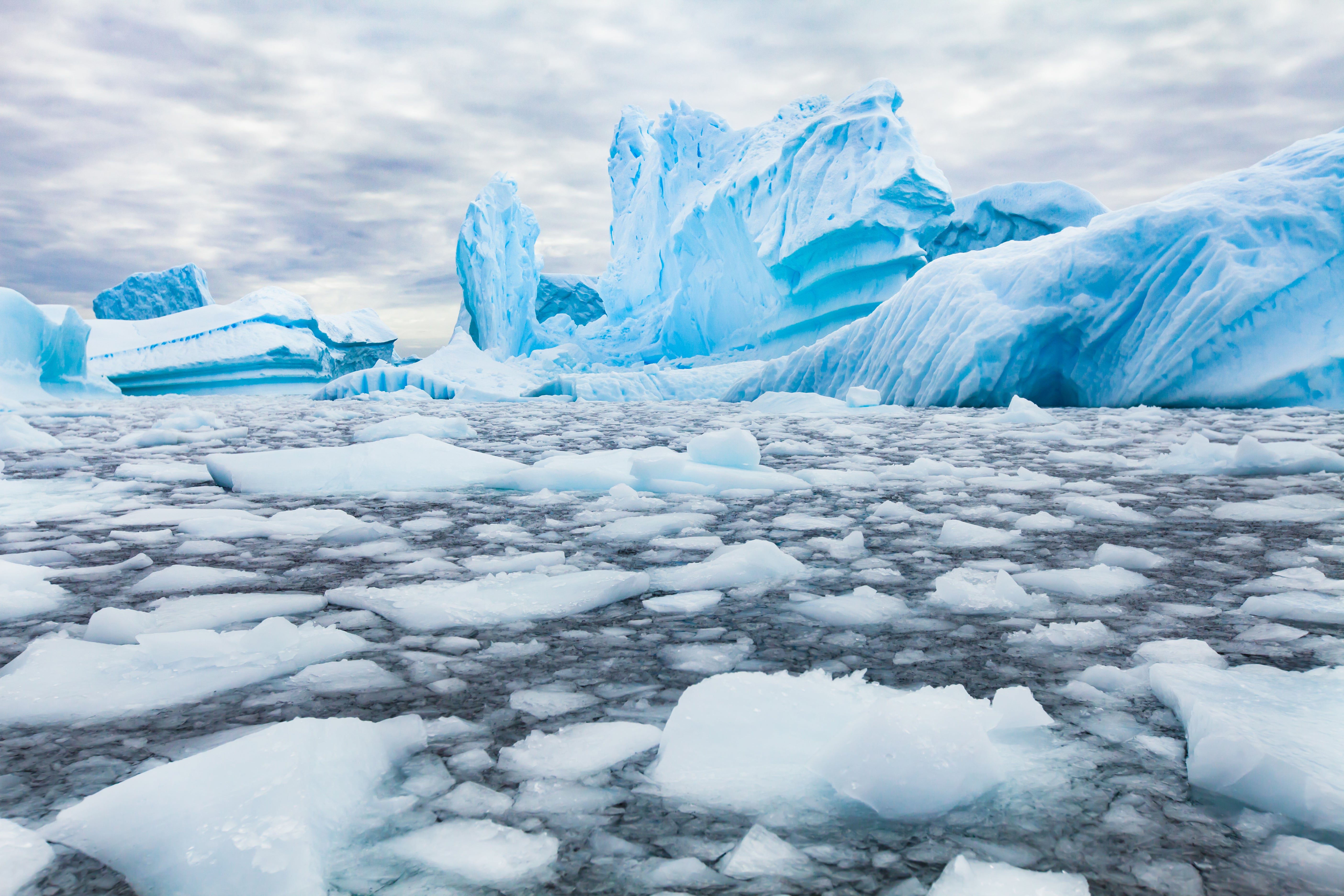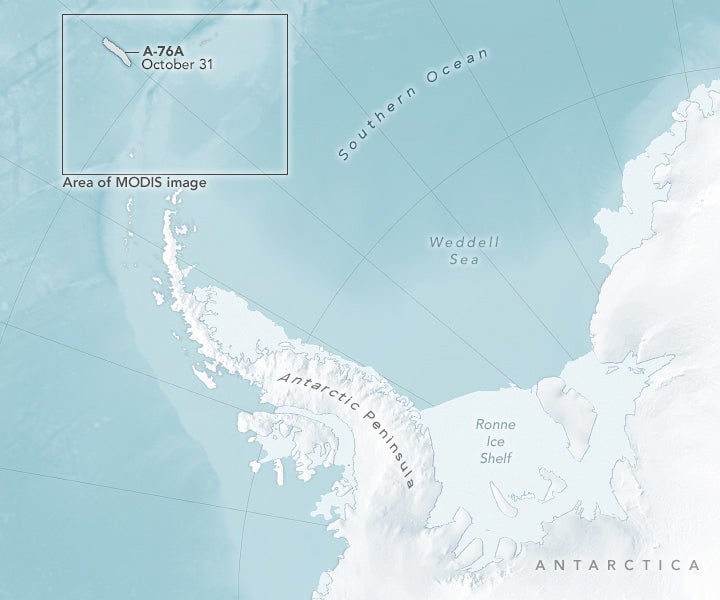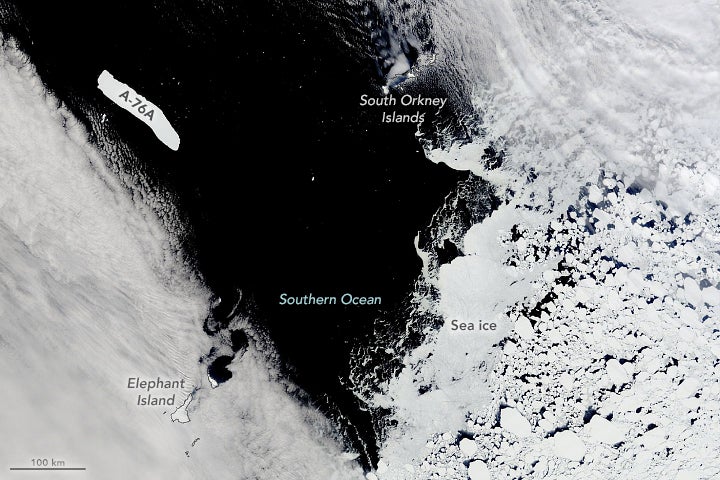Iceberg the size of Greater London could hit shipping and wildlife, scientists warn
Researchers are currently tracking two icebergs - one the size of London, and one Cornwall
Scientists fear that an iceberg the size of Greater London could soon hit shipping, fishing and wildlife.
Researchers are currently tracking two large icebergs, one named the A81 – the size of Greater London – and one the A76a, which is even larger. The size of Cornwall, the latter has been likened to an ironing board due to its shape.
Long and thin, the A76a iceberg measures over 3,000 sq km, with one research team tracking it aboard the Royal Research Ship Discovery. Inspecting it as it travelled out of Antarctica’s Weddell Sea into the South Atlantic, one biological oceanographer recalls that it took “24 hours” to traverse it on their path home.

"It was directly in our path as we sailed home so we took 24 hours out to go around it," Professor Geraint Tarling told BBC News.
"We got in quite close in some places, and had a really good view of it. We collected water from around the berg using special non-contaminated pipes under the ship, so we’ve got lots of samples to study."
The A76a iceberg originated from the Filchner-Ronne Ice Shelf in May 2021, having started off further south of its current position. Heading north, it is now being carried by currents and winds towards the Falklands and South Georgia, posing concern that it could become lodged in the continental shelf’s shallow waters.
It is equally possible that the iceberg could become trapped within a collection of nearby islets known as Shag Rocks, either of which scenarios could wreak havoc for local wildlife and people alike.

Icebergs can roll over and lose their snow layers, particularly when dropping into the sea from larger masses, making them less visible to ships.
However, the International Ice Patrol was established in 1914 following the loss of RMS Titanic in April 1912, tasked with tracking icebergs. Reports are transmitted twice each day to ships, with continuous computer plots logged of their location.
As Dr Mark Belchier, the director of fisheries and environment with the government for South Georgia and the South Sandwich Islands, explains, it could have an impact on smaller icebergs in the area.

"Although the tourist season is coming to an end, our fisheries operate during the winter months so it may impact on their operations.
“It does have the potential to cause localised issues for some of our wildlife, although that’s likely to be less of an issue if it breaks up over winter when most animals can forage over greater distances and don’t have to keep returning to land to feed young - or have moved away from the island completely”, Professor Belchier told BBC News.
A81 detached from the Brunt Ice Shelf in January. Having defied scientists’ predictions, it was expected that this iceberg would break off several years ago.
According to the British Antarctic Survey, the London-sized A81 iceberg is not linked to the climate crisis. The second mass to break off the Brunt Ice Shelf in two years, it has been described as “the most closely monitored ice shelf on Earth.”
Large icebergs can weigh up to a trillion tonnes, with the A23a currently holding the top spot as the world’s largest iceberg. Measuring 4,000 sq km in area, it originated from the Filchner-Ronne Ice Shelf in 1986. Now an “ice island”, it has lodged itself in the south-central Weddell Sea.
Join our commenting forum
Join thought-provoking conversations, follow other Independent readers and see their replies
Comments



Bookmark popover
Removed from bookmarks